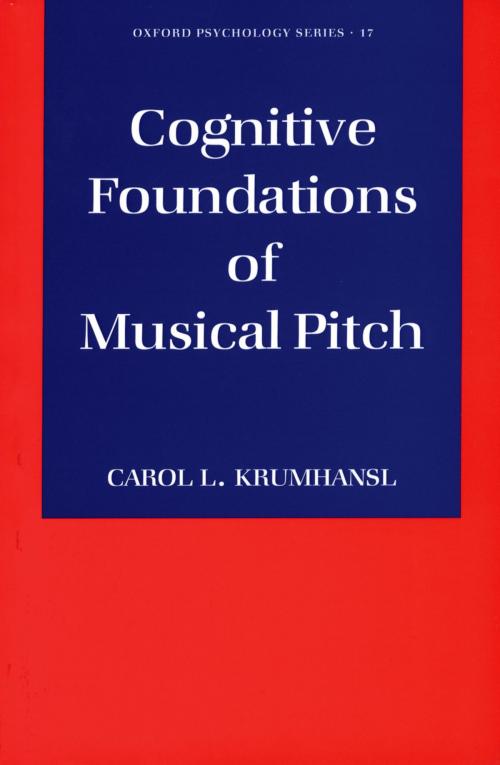Cognitive Foundations of Musical Pitch
Nonfiction, Entertainment, Music, Instruments & Instruction, Instruction & Study, Theory & Criticism, Health & Well Being, Psychology, Cognitive Psychology| Author: | Carol L. Krumhansl | ISBN: | 9780190287443 |
| Publisher: | Oxford University Press | Publication: | November 15, 2001 |
| Imprint: | Oxford University Press | Language: | English |
| Author: | Carol L. Krumhansl |
| ISBN: | 9780190287443 |
| Publisher: | Oxford University Press |
| Publication: | November 15, 2001 |
| Imprint: | Oxford University Press |
| Language: | English |
This book addresses the central problem of music cognition: how listeners' responses move beyond mere registration of auditory events to include the organization, interpretation, and remembrance of these events in terms of their function in a musical context of pitch and rhythm. Equally important, the work offers an analysis of the relationship between the psychological organization of music and its internal structure. Combining over a decade of original research on music cognition with an overview of the available literature, the work will be of interest to cognitive and physiological psychologists, psychobiologists, musicians, music researchers, and music educators. The author provides the necessary background in experimental methodology and music theory so that no specialized knowledge is required for following her major arguments.
This book addresses the central problem of music cognition: how listeners' responses move beyond mere registration of auditory events to include the organization, interpretation, and remembrance of these events in terms of their function in a musical context of pitch and rhythm. Equally important, the work offers an analysis of the relationship between the psychological organization of music and its internal structure. Combining over a decade of original research on music cognition with an overview of the available literature, the work will be of interest to cognitive and physiological psychologists, psychobiologists, musicians, music researchers, and music educators. The author provides the necessary background in experimental methodology and music theory so that no specialized knowledge is required for following her major arguments.















